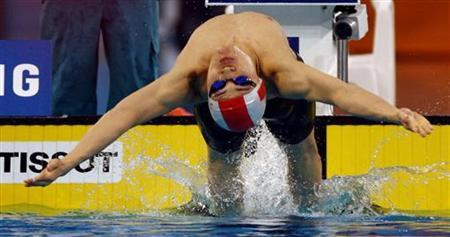Questions over the performance of Ye Shiwen come after a string of Chinese swimmers tested positive for doping in recent years.
China won 12 of the 16 women’s titles at the 1994 world championships in Rome but these achievements were sullied less than a month later when seven Chinese swimmers tested positive for banned drugs at the Asian Games in Hiroshima.
At the 1998 world championships in Perth, four Chinese competitors were sent home after testing positive for steroids. It came a week after one of their team mates and her coach were caught smuggling human growth hormone at Sydney Airport.
China’s top backstroke swimmer and record holder Ouyang Kunpeng, now 29, was given a lifetime ban after he tested positive for the same substance a month before the 2008 Beijing Olympics. The ban was later changed to two years.

And in June Chinese state media said 16-year-old Li Zhesi, part of the country’s winning team at the 2009 World Championships, had tested positive for a performance-enhancing drug, EPO, which boosts the body’s oxygen supplies.
And he said Miss Ye’s performance had brought ‘back a lot of awful memories’ of Irish swimmer Michelle Smith’s winning performance at the Atlanta Olympics in 1996.
Smith was banned for four years in 1998 for tampering with a drugs test.
by Rahndi Ghit

